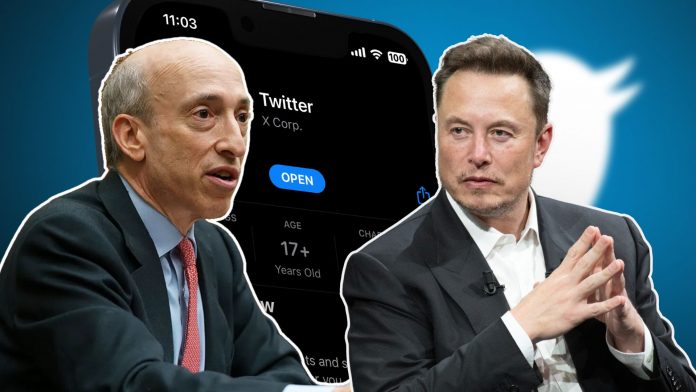The U.S. Securities and Exchange Commission (SEC) filed a lawsuit against Elon Musk on Tuesday, accusing him of waiting too long to disclose his significant purchase of Twitter shares in 2022. The SEC claims that Musk violated federal securities laws by delaying his disclosure of a 5% stake in Twitter by 11 days, giving him an unfair advantage in acquiring more shares at lower prices.
According to the SEC’s complaint, Musk’s failure to file timely disclosures allowed him to purchase more than $500 million worth of Twitter shares before revealing his stake on April 4, 2022. By that time, he owned 9.2% of the company. The SEC argues that this delay resulted in Twitter shares being artificially undervalued, which benefited Musk while disadvantaging unsuspecting investors. Following the disclosure, Twitter’s stock price surged by over 27%.
The SEC is seeking to impose a civil fine on Musk and force him to return any profits he made from the delayed disclosure.
Musk’s response
Musk’s attorney, Alex Spiro, strongly rejected the SEC’s claims, calling the lawsuit part of a “multi-year campaign of harassment” against Musk. Spiro emphasized that the SEC’s action was based on a minor “administrative failure” related to filing a form, an issue that, even if proven, would result in a negligible penalty. He further stated, “Mr. Musk has done nothing wrong and everyone sees this sham for what it is.”
Musk eventually acquired Twitter in October 2022 for $44 billion, subsequently rebranding the company as X. However, his acquisition was marred by legal challenges, including one from former Twitter shareholders over the delayed disclosure. Musk has argued that any delay in disclosure was a mistake, not an intentional effort to defraud other investors.
This is not Musk’s first legal confrontation with the SEC. The agency previously sued Musk in 2018 over misleading tweets about taking Tesla private, which led to a $20 million civil fine and Musk stepping down as Tesla’s chairman. Additionally, the SEC sought sanctions against Musk after he missed court-ordered testimony in the Twitter probe last year, although a federal judge later rejected the request.
Musk’s ongoing tensions with the SEC are emblematic of his broader contentious relationship with regulators, particularly regarding his public statements and business dealings.



